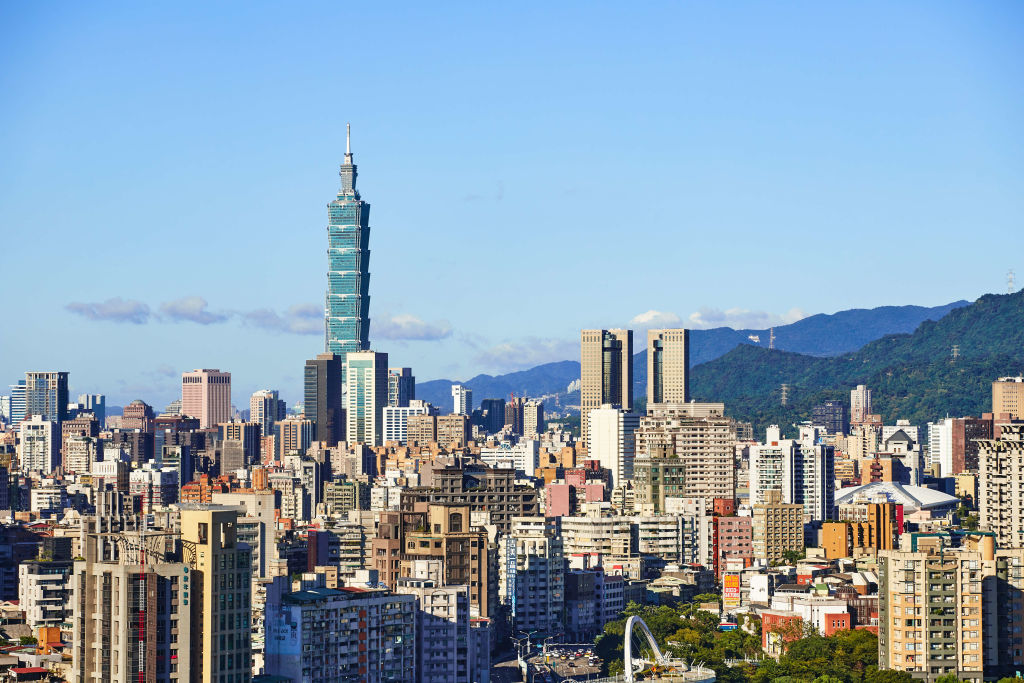
An empty street in Taipei, China's Taiwan, May 21, 2021. /Getty
An empty street in Taipei, China's Taiwan, May 21, 2021. /Getty
Editor's note: Zhou Wenxing is a research fellow at Huazhi Institute for Global Governance, Nanjing University and former Asia Fellow at John F. Kennedy School of Government, Harvard University. The article reflects the author's opinions, and not necessarily the views of CGTN.
Currently, the Democratic Progressive Party (DPP) authorities are investing a huge amount of human and financial resources to establish many centers for local studies and related programs in the U.S. For example, the University of California at Los Angeles announced receipt of a $2 million donation from the Taiwan authorities in February, and some of the funds will "be used to establish a program dedicated to the study of Taiwan in a global context."
On the surface, these centers and programs are aiming to promote cooperation in cultural education and particularly in language between China's Taiwan region and the U.S. However, they are part of the DPP authorities' plan to improve the younger American generation's recognition of Taiwan region's political institutions and culture in the name of cultural exchange so as to cement the public opinion foundation for their secessionist agenda.
The Tsai Ing-wen authorities' cultural agenda for secession could not be so successful without firm support and encouragement from the U.S. government. In fact, Ingrid Larson, the Managing Director of the American Institute in Taiwan (AIT), signed a Memorandum of Understanding on international education cooperation with Hsiao Bi-khim, "Taiwan Representative to the U.S." in early December 2020 in a virtual ceremony. Hsiao extolled the initiative as the best way to strengthen Taiwan's "connections" with the U.S. by encouraging students from both sides to communicate and establish a friendship.
Some other American senior officials' remarks reveal more explicit political intention. Brent Christensen, a director of the AIT, told reporters in January 2021 that with more Chinese mainland-sponsored Confucius Institutes are closed in the U.S., it "is the time for Taiwan to step forward and help fill the gap…but to more fully tell Taiwan's story."
Later in a joint letter to the U.S. Secretary of Education in March, more than 20 bipartisan lawmakers in U.S. Congress advocated for supporting Taiwan's language and cultural programs and using them to replace the role of Confucius Institutes in the U.S.

Taipei 101 dominates the city skyline in Taipei, Taiwan, southeast China, July 9, 2018. /Getty.
Taipei 101 dominates the city skyline in Taipei, Taiwan, southeast China, July 9, 2018. /Getty.
The cultural initiatives pushed hard by the Tsai authorities disclose the DPP's speculative behaviors and their old trick in relying on the U.S. to seek "independence" in particular. As the China-U.S. ties are now being witnessed in their worst time since the two countries' establishment of diplomatic relations some 40 years ago, the U.S. is more prone to use the Taiwan issue to balance against China. Seeing this as a great opportunity to secede the Taiwan region from China, the DPP authorities take advantage of the occasion to further collude with the U.S.
In the short run, the Tsai Ing-wen authorities' efforts to improve Taiwan's connections with the U.S. through language and cultural means are seemingly conducive to Taiwan, namely, enhancing the status of the island in American policy makers' strategic calculation. The current President Joe Biden and his predecessor have indeed been playing the Taiwan card as a way to deter China.
However, the Tsai authorities' attempt for "cultural independence" in the long run is doomed to fail. The key reason is that the so-called "independence" is a mission impossible.
For the Chinese mainland, Taiwan remains its core national interest. The Chinese government and its people shall do whatever, including by force, to prevent "Taiwan's independence" from the Chinese mainland, as stipulated in the Anti-Secession Law. The narrowing gap of military strength between China the U.S. makes the former's commitment more credible.
But this is not the case for the U.S. at all. Its military involvement into any conflict in the Taiwan Straits remains uncertain, which is largely because the Taiwan issue is not a core interest for the U.S.
Former Chairman of AIT Richard Bush recently warned that the U.S. government's pro-Taiwan activities are sometimes violating U.S. Constitution and are too dangerous. This warning should also be told to the DPP authorities: their push for "cultural independence" would never bear any fruit; rather, they are perhaps igniting a war in the near future.
(If you want to contribute and have specific expertise, please contact us at opinions@cgtn.com.)

